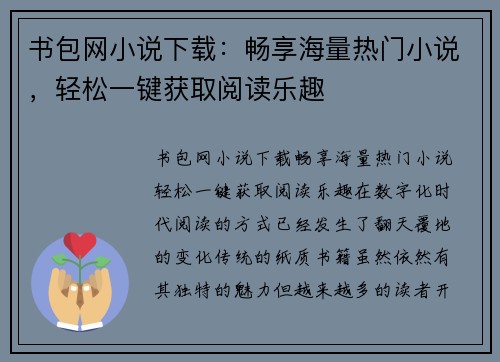pilipili in English: Exploring the Meaning and Usage of This Unique Term
In the vast tapestry of languages spoken around the world, certain words and phrases stand out for their uniqueness and cultural significance. One such term is "pilipili." This word, which has its roots in various African languages, particularly Swahili, carries a rich array of meanings and usages that reflect the cultural contexts in which it is employed. In this article, we will delve into the meaning of "pilipili," explore its various applications, and examine its cultural significance.
The Etymology of "Pilipili"
The term "pilipili" is derived from the Swahili language, where it primarily means "pepper." In many East African cultures, peppers are not just a culinary ingredient; they symbolize warmth, spice, and flavor in life. The word can refer to various types of peppers, including chili peppers, which are known for their heat and pungency. Understanding the etymology of "pilipili" provides a foundation for exploring its broader implications in language and culture.
Culinary Significance
In culinary contexts, "pilipili" is often used to describe spicy dishes that incorporate chili peppers. In countries like Kenya, Tanzania, and Uganda, dishes featuring pilipili are celebrated for their bold flavors and heat. For instance, pilau, a spiced rice dish, often includes pilipili to enhance its taste. The use of "pilipili" in cooking is not merely about adding spice; it reflects a cultural appreciation for bold flavors and the communal experience of sharing meals that are rich in taste.
Cultural Symbolism
Beyond its culinary applications, "pilipili" holds cultural significance in various African societies. It is often associated with vitality, energy, and resilience. Just as peppers can add heat to a dish, the concept of "pilipili" can symbolize the zest for life and the ability to overcome challenges. In this sense, the term transcends its literal meaning and becomes a metaphor for strength and perseverance in the face of adversity.

Usage in Everyday Language
In everyday conversation, "pilipili" can be used in various contexts. For example, someone might say, "This dish needs more pilipili," indicating that it lacks the desired spiciness. Additionally, the term can be used metaphorically to describe a person who is lively or full of energy. In this way, "pilipili" becomes a versatile term that can enhance both culinary discussions and social interactions.
The Role of "Pilipili" in Folklore and Proverbs
Language is often enriched by folklore and proverbs that encapsulate cultural wisdom. In some East African cultures, proverbs involving "pilipili" convey important life lessons. For instance, a saying might emphasize the idea that just as a little pilipili can transform a bland meal, small actions can lead to significant changes in life. Such proverbs highlight the importance of appreciating the small things and recognizing their potential impact.
"Pilipili" in Popular Culture
The influence of "pilipili" extends into popular culture, where it is often referenced in music, literature, and art. Songs that celebrate the vibrancy of life may incorporate the term to evoke feelings of joy and excitement. Additionally, artists may use "pilipili" as a motif to represent cultural identity and the richness of African heritage. This integration into popular culture further solidifies the term's relevance and resonance in contemporary society.
Global Recognition and Adaptation
As globalization continues to shape cultural exchanges, the term "pilipili" has gained recognition beyond its original linguistic boundaries. In international culinary circles, chefs and food enthusiasts are increasingly experimenting with African spices, including pilipili. This adaptation not only introduces new flavors to global cuisine but also fosters a greater appreciation for the cultural significance of ingredients like pilipili.
The Future of "Pilipili"
Looking ahead, the future of "pilipili" appears promising. As more people become interested in diverse culinary traditions and cultural expressions, the term is likely to gain further traction. Educational initiatives that promote African languages and cultures can help preserve the significance of "pilipili" while encouraging its usage in various contexts. By embracing this unique term, we can celebrate the richness of linguistic diversity and cultural heritage.
Conclusion
In conclusion, "pilipili" is more than just a word; it embodies a rich cultural heritage that spans culinary, social, and metaphorical dimensions. From its origins in Swahili to its contemporary applications in everyday language and popular culture, "pilipili" serves as a reminder of the vibrancy and resilience of African cultures. As we continue to explore and celebrate unique terms like "pilipili," we contribute to a broader understanding of the interconnectedness of language, culture, and identity.
Frequently Asked Questions
What does "pilipili" mean?
- "Pilipili" primarily means "pepper" in Swahili, often referring to chili peppers.
Where is the term "pilipili" commonly used?
- It is commonly used in East African countries such as Kenya, Tanzania, and Uganda.
What is the cultural significance of "pilipili"?
aqdav最新永久入口- "Pilipili" symbolizes vitality, energy, and resilience, reflecting a zest for life.
How is "pilipili" used in cooking?
- It is used to describe spicy dishes and is often added to enhance flavor.
Are there proverbs related to "pilipili"?
- Yes, there are proverbs that use "pilipili" to convey life lessons about small actions leading to significant changes.
Has "pilipili" influenced popular culture?
- Yes, it is referenced in music, literature, and art, symbolizing cultural identity.
Is "pilipili" recognized globally?
- Yes, it has gained recognition in international culinary circles as chefs explore African spices.
What does the future hold for "pilipili"?
- The term is likely to gain further traction as interest in diverse culinary traditions grows.
How can we preserve the significance of "pilipili"?
- Educational initiatives promoting African languages and cultures can help preserve and encourage the usage of "pilipili."




